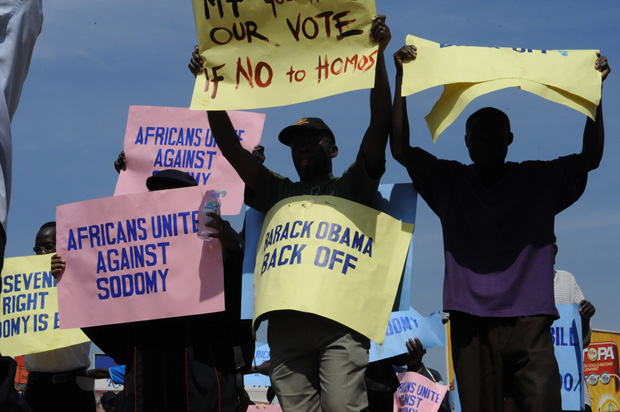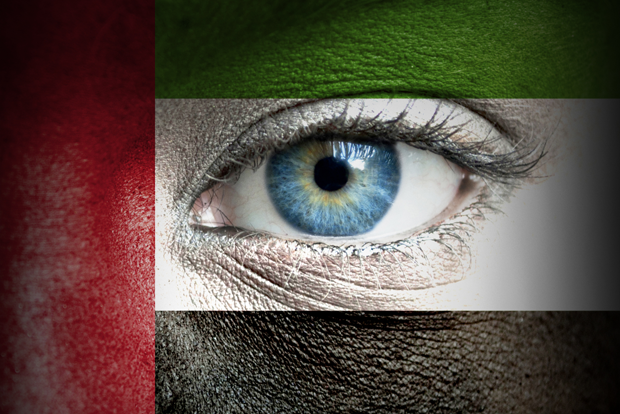14 Mar 2014 | Awards, Egypt, News
Rapper Mayam Mahmoud uses hip-hop to address issues such as sexual harassment and to stand up for women’s rights in Egypt.
Women played a significant role in the demonstrations that eventually toppled the regime of Hosni Mubarak in 2011. In the aftermath, however, the problem of sexual harassment has become what activists now describe as “an epidemic”.
The 18-year-old rose to prominence through her appearances on the popular TV show Arabs Got Talent. Aged 12, she was introduced to poetry by her mother. She began writing her own work, which soon turned into rap — still a male dominated music genre across the world.
“It’s got a lot of people talking about whether it’s possible for a veiled girl, or even a girl, to do this,” she says. “The girls in this field are thought to have bad morals. So it’s hard to find someone to work with her, to create a beat, to master the track.”
In order to develop her own voice, Mayam tries not to listen to western Hip hop and her songs tackle harassment and victim-blaming head-on – condemning Egyptian society for accepting harassment as part of everyday life, and for laying the blame for it on women rather than men.
“I won’t be the shamed one,” she says in one of her raps. “You flirt, you harass and you see nothing wrong with it. But even if it’s just words, these are not flirts, these are stones.”
Nominees: Advocacy | Arts | Digital Activism | Journalism
Join us 20 March 2014 at the Barbican Centre for the Freedom of Expression Awards
This article was posted on March 14, 2014 at indexoncensorship.org
14 Mar 2014 | Africa, News, Uganda

Hundreds of Ugandans took to the streets in support of the government’s proposed anti-homosexuality bill in 2009 (Image: Edward Echwalu/Demotix)
A petition has been filed to the Constitutional Court of Uganda seeking to repeal the Anti Homosexuality Act 2014, on the grounds that it is “draconian” and “unconstitutional”.
The petitioners — MP Fox Odoi, Joe Oloka Onyango, Andrew Mwenda, Ogenga Latigo, Paul Semugooma, Jacqueline Kasha, Julian Onziema, Frank Mugisha and two civil society organisations — are challenging sections 1, 2 and 4 of the recently passed anti-gay law, which criminalise homosexual activity, between consenting adults in private. They argue these sections are in contravention of the right to privacy and equality before the law without discrimination, guaranteed under the Ugandan constitution. They also claim the that bill was passed without quorum in parliament, despite Prime Minister Amama Mbabazi informing the speaker of this — also an unconstitutional act.
Addressing the media after filing the petition, Odoi vowed to fight for the rights of gay people even if it meant him losing support from his constituency. “I would rather lose my seat in parliament than leave the rights of the minorities to be trampled upon. I don’t fear losing an election, but I fear living in a society that has no room for minorities,” he said. “A country that cannot tolerate minority groups like gays should never claim to be democratic, lawful and pro-people,” he added.
The petitioners have highlighted several parts of the new law that they believe to be unconstitutional. They argue that life sentence for homosexuality is in contravention of the freedom from cruel, inhuman and degrading punishment, while the section subjecting persons charged with “aggravated homosexuality” to compulsory HIV test is inconsistent with a number of articles in the constitution.
The petition also argues that through banning aiding, abetting, counselling, procuring and promotion of homosexuality, the law is creating overly broad offences. Additionally, the group state that it’s wrong for the act to penalise legitimate debate on homosexuality, as well as professional counsel, HIV-related service provision and access to general health services for gay people.
Petitioner Ogenga Latigo, former leader of the opposition in parliament, questioned the competence of the speaker of parliament who passed the law without quorum. Speaker Rebecca Kadaga has in the past been vocal about her disdain for homosexuals, and wanted this law passed before the end of 2012 as a “Christmas gift” to Ugandans. “The speaker’s position should always remain neutral while tabling issues in parliament, but our speaker went on and enforced her views on all MPs; the speaker never followed the procedures that govern the passing of laws in parliament because of her homophobic beliefs,” he said.
The group argues that since the law was enacted, there has been an increase in the number of violent attacks on gay people. In other instances, they say, those suspected or known to be gay have been evicted from their apartments by homophobic landlords.
Odoi, who authored a minority report against the bill before it was passed by parliament, is optimistic that the petition will succeed, if the case is handled by unbiased judges. “We want court to declare the law unconstitutional, null and void and cease to be a binding law, thus give a chance to homosexuals to enjoy their rights and freedoms,” he asserted.
This article was posted on March 14 2014 at indexoncensorship.org
13 Mar 2014 | Awards, News
Lucien Bourjeily openly confronted the Lebanese censorship bureau by writing a play Would It Pass Or Not? about censorship in Lebanon. The play was banned, exposing the farcical sensitivity of the censors and forcing them to justify their actions in public.
The play was produced by March – an anti-censorship NGO of which Bourjeily is an advisory board member.
In conversation with Index, Bourjeily told of his bizarre encounters with the censor board’s general when summoned to the bureau in Beirut on 28 August.
“The play could not go ahead” he was told “because it was not realistic. It was exaggerated”. “True”, said Bourjeily, “it’s fiction. Of course it’s unrealistic and exaggerated. Otherwise it would be a documentary”.
Bourjeily recounts the general turning to his subaltern and describing scenes from the play, asking “would such a thing happen here?”, unintentionally and ironically echoing a scene in the play itself. When censors are censoring a play about censorship, things are bound to turn to farce sooner or later.
Normally, Lebanon’s censors will suggest changes to works that will allow them to pass – a joke removed here, a political remark erased there. But with Bourjeily’s play, this was apparently not going to happen.
The censors’ next move was interesting: they would show, they said, that Boujeily’s play had no artistic merit. On 3 September, General Mounir Akiki appeared on television bearing testimony from four “critics”, each of whom said the same thing; that there was no artistic value in “Would it pass or not?”
Curiously, none of these critics were named, despite their views being taken very seriously indeed. One said that Bourjeily’s play contained “a defamatory hallucination indicating the absence of his artistic level”, another that the play “was not related to the theatre, but rather with prosaic words. It does not meet the conditions regarding structure.”
Nominees: Advocacy | Arts | Digital Activism | Journalism
Join us 20 March 2014 at the Barbican Centre for the Freedom of Expression Awards
This article was posted on 13 March 2014 at indexoncensorship.org
13 Mar 2014 | News, United Arab Emirates

(Photo illustration: Shutterstock)
On 3 March 2011 a group of Emirati intellectuals sent a petition to the country’s rulers that politely requested democratic reform and political participation. Authorities have responded by spending the past three years jailing and torturing those who supported the petition. Now citizens are using social media platforms to criticise security services for growing levels of repression with authorities responding in kind by arresting and torturing them.
Since punitive legislation governing use of the internet was passed in November 2012 at least six people have been sent to prison for comments made on Twitter. The latest to be convicted are Khalifa Rabeiah and Othman al-Shehhi who were both sentenced to five years in prison and ordered to pay fines of £81,875 on 10 March for criticising security services on Twitter.
The story for these two men has become a predictable one for those who dare to criticise authorities in the United Arab Emirates (UAE). They were arrested on 24 July and spent at least six months detained at an unknown location where they say officers tortured them and denied them access to a lawyer. Their families desperately sought information about the reason for their detention but were told by the attorney general’s office that no warrant had been issued for their arrest, so they could not help.
The only available information about their arrest came from the government-linked television channel 24.ae, which broadcast a report analysing Rabeiah’s Twitter account. They accused him of sedition based on his use of hashtags that demonstrated support for jailed political prisoners. There is no information detailing the offending comments made by al-Shehhi, although he used the same hashtags as Rabeiah on his account.
Both men are members of al-Islah, an organisation linked with calls for political reform, and used Twitter to show solidarity with jailed members of their colleagues. The hashtag they used most, “Free Emirates”, has been active for the past three years since the authorities began to arrest political activists with a particular focus on members of al-Islah.
As authorities continue to arrest people for comments made on social media this crackdown increasingly resembles a rather frightening incarnation of Whac-A-Mole. Immediately after news was released of these latest convictions hashtags sprang up in support of both men, with Twitter users criticising security services and calling for political prisoners to be released.
It is clear that repression is fuelling dissent and with repression on the rise criticism will only increase in its intensity. These men may be deprived of their means to criticise but their jailing has sparked a wave of renewed anger at security services. Each arrest, every allegation of torture and the conclusion of more political show trials simply serves to make the problem more complicated and unsolvable for authorities.
Even the international community has started to take notice of what is happening in the UAE. Following a country visit in January a United Nations (UN) expert published a report calling for an investigation into torture and described the country’s judiciary as being under the control of the executive. The security services might not be able to arrest the UN representative but it is unlikely she will be allowed to visit again, as is the case for several Human Rights Watch employees who were banned from the country earlier in the year.
Khalifa Rabeiah and Othman al-Shehhi spoke out on Twitter because political activists were being tortured and subjected to unfair trials. In so doing they suffered the same fate, becoming two more names on a lengthening list of political prisoners. It is unclear how this crackdown will conclude but it is increasingly apparent that the threat of imprisonment has failed to prevent people from criticising repression and with each new arrest authorities create many more political opponents.
This article was posted on March 13 2014 at indexoncensorship.org


